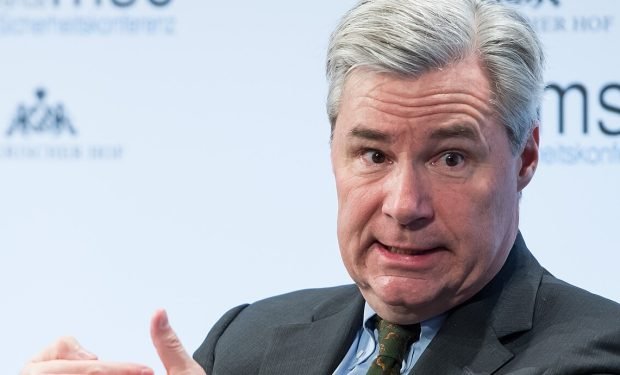U.S. Senator Sheldon Whitehouse took his heavy criticism of the contemporary Supreme Court to the national airwaves this weekend, telling Chuck Todd that the SCOTUS was now essentially an “ethics-free zone.”
By that Whitehouse means not that no one on the Court possesses ethical responsibility, though the Senator has savaged the ethically challenged Justice Clarence Thomas.
Did you think I’d show up to the hearing on Supreme Court ethics without receipts? pic.twitter.com/QjdF7T0rIl
— Sheldon Whitehouse (@SenWhitehouse) May 2, 2023
What Whitehouse means by saying the SCOTUS is ethics-free and “fact-free” is that the Court currently operates without sufficient checks and balances. The Senator uses as an example Justice Thomas’s failing to recuse himself on hearings pertaining to the Jan. 6 breach of the Capitol, despite his wife’s (Ginny Thomas) controversial work with the Jan 6 organizers.
The recusal decision relied solely on Thomas’s own discretion, without any kind of external input on the potential ethics compromises at play. Thomas consulting Thomas about whether Thomas should participate in a case is not a sufficient check, as Whitehouse sees it.
EARLIER: @SenWhitehouse (D-R.I.) says the Supreme Court is in a "fact" and "ethics-free zone," comparing the Court to "railroad barons." @chucktodd: "It just escalates —"
— Meet the Press (@MeetThePress) May 28, 2023
Whitehouse: "Unless we change the law so that dark money is no longer accepted." pic.twitter.com/u5wR5lyr6v
Asked about the Court’s problems, Whitehouse asserted that he believes a multi-pronged organizational effort to own the Court centers around the operative Leonard Leo, who runs — besides the Judicial Crisis Network — “another dozen front groups” that have put, Whitehouse estimates, a “$580 million spend” into influencing — i.e., capturing — the judiciary.
[NOTE: This Times article reveals a $182.7 million spend in a one year, though it is not all linked to the SCOTUS.]
The result, Whitehouse says, is that the SCOTUS is not so much a “conservative Court” as a “captured Court.”
“In the same sense that in the old days railroad barons used to capture the railroad commissions that would do the decision,” Whitehouse says. “I think there is a very strong case that that is exactly what is happening to the court right now.”
Whitehouse could have chosen another monopolistic industry where American oligarchs emerged, such as oil or steel, but having chose the railroads he struck an apt analog.
Background:
During the late 19th and early 20th centuries, several American railroad barons held immense power and influence over the railroad industry. One notable figure was Collis P. Huntington, a key player in the Southern Pacific Railroad.
Railroad barons like Huntington employed various tactics to maintain their dominance and secure favorable decisions. They utilized their significant financial resources and political connections to influence regulatory bodies and shape regulations in their favor.
While specific instances of “capturing” regulatory commissions may vary, railroad barons sought to ensure that individuals sympathetic to their interests held key positions within these bodies. This allowed them to influence decisions that directly impacted their railroad operations, often at the expense of consumers and smaller competitors.
The influence wielded by railroad barons over regulatory bodies was met with public criticism and allegations of corruption. Over time, these concerns led to calls for reforms to curb their power and establish fairer regulation.
The Progressive Era, which emerged in the early 20th century, witnessed efforts to dismantle the monopolistic control of railroad barons. Reforms aimed to increase transparency, accountability, and fair competition within the railroad industry. These reform movements resulted in the reorganization and transformation of regulatory bodies, such as the California Railroad Commission becoming the Public Utilities Commission (PUC) in 1911.
It’s the type of change the contemporary progressive, Sen. Whitehouse, is trying to usher in now when it comes to the Supreme Court.
